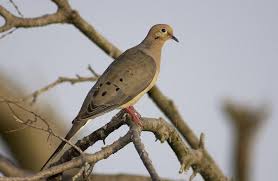 I recently pulled into my usual hotel in Yuma, AZ and the place was jammed. I had trouble finding a parking spot. Good thing I had a reservation because the hotel was completely full. It was unusual. Yuma, Arizona?
I recently pulled into my usual hotel in Yuma, AZ and the place was jammed. I had trouble finding a parking spot. Good thing I had a reservation because the hotel was completely full. It was unusual. Yuma, Arizona?
The bar and the lobby and the elevators were full of large men wearing camouflage outfits. Nearly all had short-cropped hair or shaved heads. Most had carefully tended but desperate-looking facial hair. Military? I saw guns but no insignia. And there were dogs, lots of dogs.
I was concerned about the dogs. I thought the hotel was pet-free. The clerk told me ‘pet-free’ means they do allow pets but they charge an extra $200 per room for a cleaning fee if you bring a pet. So more like pet-hair-and-dander-free, not exactly pet-free. Assuming they do a thorough cleaning. Close enough for Yuma, AZ.
“What’s going on?” I asked.
“Annual dove hunt. It’s huge. Every hotel in town is full for two weeks.”
“Doves? You mean those pigeons that are all over the place?”
“They’re doves.”
“And people shoot them?”
“They’re an agricultural pest. It’s conservation. And a sport.”
“So these guys are conservationists?”
“Hunters. It’s fun for the whole family. We do it every year. The hotel sets up a cleaning station in the back for processing the catch.”
“The catch,” I thought. I hardly knew what to say. I checked in and picked up a copy of a special multi-page insert to the Yuma Sun about “Dove Hunt 2016!” and headed across the lobby crowded with 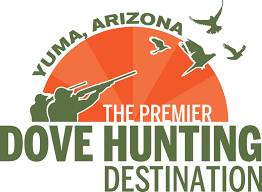 men in heavy boots, green or brown camouflage, big knives sheathed on their belts, backpacks rather than suitcases, some with leashed dogs – and these were largish dogs, not lap dogs. I didn’t see any women or children.
men in heavy boots, green or brown camouflage, big knives sheathed on their belts, backpacks rather than suitcases, some with leashed dogs – and these were largish dogs, not lap dogs. I didn’t see any women or children.
I waited for an elevator with no dogs in it and made it safely to my room. What an unexpected turn of events! I always stop in sleepy Yuma on my way back to Tucson from northwest Los Angeles, breaking the 11-hour drive into comfortable 6- and 5-hour stretches. Nothing ever happens in Yuma. There’s nothing there but farms and sand dunes, but it has a lot of decent hotels because it’s right on the border, near the Mexican city of Algodones, where you can get first-class medical treatment, prescription drugs, eyeglasses, hearing aids, and much else at a fraction of U.S. prices. Besides medical tourism, who knew pigeons were a huge draw in Yuma? Excuse, me, doves.
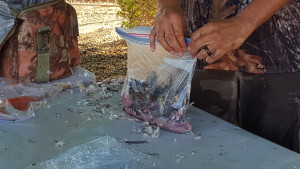 Before I left in the morning, out of curiosity I went around back of the hotel to the “cleaning station.” It was only eight in the morning but a group of four men were apparently the last of the morning hunters. They go out before dawn, I learned. They were milling around a pair of folding tables covered in feathers, blood, knives, and plastic bags. They hosed off sections of the table as they worked. Dogs sat and lay nearby huge pickup trucks with elevated beds. Shotguns rested vertically near the tables and near the trucks. There were many more guns than men, but the men were friendly and eager to answer my questions as they worked.
Before I left in the morning, out of curiosity I went around back of the hotel to the “cleaning station.” It was only eight in the morning but a group of four men were apparently the last of the morning hunters. They go out before dawn, I learned. They were milling around a pair of folding tables covered in feathers, blood, knives, and plastic bags. They hosed off sections of the table as they worked. Dogs sat and lay nearby huge pickup trucks with elevated beds. Shotguns rested vertically near the tables and near the trucks. There were many more guns than men, but the men were friendly and eager to answer my questions as they worked.
“You missed most of the excitement,” one fellow told me. He looked to be mid-40’s, with fluffy mutton-chop sideburns and a strange, raspy but high-pitched, childish voice, incongruous with his large frame. “The hunting’s just about over for the day.”
I looked at several zip-lock bags of bloody meat. “I’m surprised you can get any meat off a bird that small,” I said.
“Just the breasts. Only two small pieces per bird. But it’s good eatin’.” He held up a bag filled with dozens of bite-sized pieces of meat. “I bagged my limit this morning.”
“What is the limit?”
“Fifteen a day, but only ten can be white-wings.”
“So the hunt is regulated.”
“Oh yeah. You need a license and a bird stamp. Not that anybody really checks. But it’s a sport, you know.”
As he talked, he picked up the body of a bird in one bare hand and twisted its head off with the other in on quick flick of the wrist and tossed the head into a large plastic garbage can. I resisted an impulse to lean over and look into the can to see an image that I would not be able to un-see.
The man twisted off the bird’s legs just as deftly, tossed them, then put the little corpse down on a cutting board. With a wicked-looking black knife with a black blade, he made a neat incision in the front of the body then put the knife down and inserted his thumbs into the slot and split the bird open.
“This here’s the good part,” he said as he scooped out one then the other of the breast muscles from the bird and put the two pieces, less than an ounce each I would guess, into a baggie. He tossed the remaining limp corpse into the garbage can.
“So you eat that?” I said, trying to sound casual and hide my incredulity.
“Oh yeah. You stuff each piece inside a fresh jalapeno and grill the whole thing. Very tasty.”
Another man spoke up, a tall thin fellow also cleaning his catch. “I soak mine in milk for a few hours to get the smell out, then sautee them in oil with little potatoes.”
I looked at his catch bag which was larger, the one-gallon size, full of intact bird bodies minus heads, tails, and feet, but not cut open. Oddly, each had one wing still attached. Unlike the first hunter, he wore blue rubber gloves, which made me wonder what kind of diseases you could catch from wild birds.
“Why do yours still have feathers?” I pointed.
“The judges have to see what kind of dove it is before you prepare it.”
“The judges?”
“For the cook-off. At the convention center this afternoon. You can win a scope or even two thousand dollars. Free samples. You should go. Stand back.”
I stood back and he hosed blood and a few feathers from his prep area of the table.
“Well, thank you for the demonstration, gentlemen,” I said as I backed away, keeping an eye on the dogs, who seemed docile.
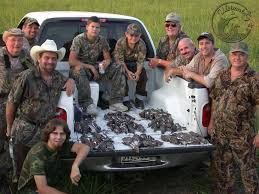 As I drove through the barren desert east of Yuma I thought about the dove hunt. I had accidentally stepped into a completely alien world, as if I had been abducted to an extraterrestrial space ship. It wasn’t merely that I have never hunted, especially not pigeons. There are a lot of things I’ve never done. And my uncomfortable feeling wasn’t about cruelty to animals, which I abhor, because I accept hunting as a legitimate sport in the context of conservation. I wouldn’t support head-hunting just for trophies, but hunters are a legitimate part of the ecology in controlling populations of deer, wolves, and other animals in the west. Part of nature.
As I drove through the barren desert east of Yuma I thought about the dove hunt. I had accidentally stepped into a completely alien world, as if I had been abducted to an extraterrestrial space ship. It wasn’t merely that I have never hunted, especially not pigeons. There are a lot of things I’ve never done. And my uncomfortable feeling wasn’t about cruelty to animals, which I abhor, because I accept hunting as a legitimate sport in the context of conservation. I wouldn’t support head-hunting just for trophies, but hunters are a legitimate part of the ecology in controlling populations of deer, wolves, and other animals in the west. Part of nature.
No, what bothered me was the mentality of the men I had met. Like, why would you do it? Of all the things you can do with your recreational time, why would ripping the heads off of small birds with your bare hands be a priority choice? How much fun could that be? And what was up with the camouflage outfits? Can the birds really not see you in camouflage? And the oversized trucks, and the guns, and the dogs, and the big knives – none of which I own or care to, ever.
And the idea of eating doves. I guess that’s the cover story for any hunter. You must eat what you shoot. Legitimizes the activity. Hunger trumps animal rights. Though these guys were not suffering from hunger, by any measure.
If you’re doing conservation work, just culling populations for agricultural or ecological reasons, you don’t need to eat your quarry, or pretend that you must. Lots of people catch mice without eating them. But that’s apparently not how hunters think. There’s a survivalists streak in what they were doing. They were proud of their “catch” and proud they would eat meat that they had caught themselves. Only wimps buy their meat in a grocery store. These were real men. They had big trucks with knobby tires.
It was kind of a cave-man thing. They knew how to live off the land. Good skills to have for the apocalypse? You’re not worried about the world coming to an end because you can always live off of dove breasts. But wouldn’t you also need to know something about metallurgy and dental care? Chemistry and electricity generation? What about petroleum refining? How’s all that going to work after the apocalypse? I don’t believe the survivalist strategy is well-thought-out.
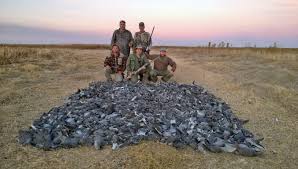 As the hypnotic miles slipped past, I decided it’s really not about survivalism at bottom. It’s about individualism. The myth, especially strong in the west, especially among the under-educated is that we are monads, each person a self-contained, self-sufficient individual and we all must make our own way in life. That was the fantasy these men were living.
As the hypnotic miles slipped past, I decided it’s really not about survivalism at bottom. It’s about individualism. The myth, especially strong in the west, especially among the under-educated is that we are monads, each person a self-contained, self-sufficient individual and we all must make our own way in life. That was the fantasy these men were living.
Of course it’s completely wrong. The opposite is true. No person can survive long outside a community. We are social animals. Life depends on having internalized the rules and mores of a reference community. If that community were to fall away for some reason, you would quickly lose even the abilities to think and speak. It’s been called the “Robinson Crusoe effect.”
Why do members of a certain class of individuals cling to the myth of individualism (even while they do so in tight communities, e.g., of hunters)? As I approached the outskirts of Tucson, I decided it was because social empathy is not innate. It’s a learned set of skills and attitudes, and if empathy isn’t taught, or isn’t taught well, or isn’t learned well, it’s not likely that a person will spontaneously develop community feeling, feelings of mutual dependency and compassion. They will live feeling alienated, an outsider.
These men cling to the illusion of individualism because they were short-changed in the empathy department and have always lived with an awareness of being on the fringes of society. Not exactly social rejects, but never quite comfortable with the mainstream. So they glorify their tough self-sufficiency to make lemonade out of lemons.
I wonder if lemon juice would be good on dove meat?
